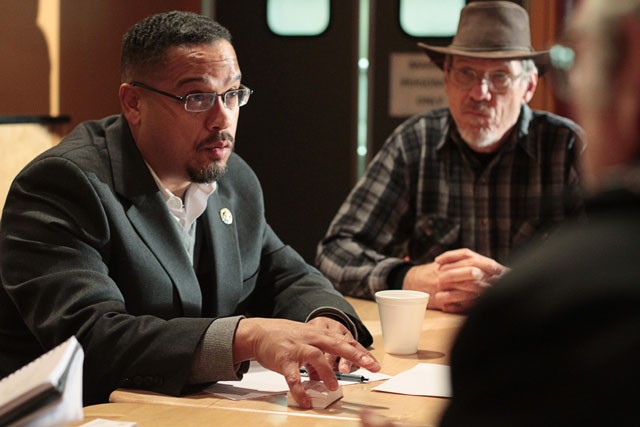When Jared L. Loughner, a 22-year-old former student at Pima Community College in Arizona, was arrested for killing six people outside a grocery store last week, it left the country asking whether the college did all it could to prevent the deadly attack. As a result, policies dealing with students exhibiting signs of mental illness that could lead to violent acts are being scrutinized at universities around the country. Jerry Rinehart, the University of MinnesotaâÄôs vice provost of student affairs, said while the Tucson shootings have made the University evaluate its preparation for a violent event, he feels confident in the campusâÄô safety. âÄúThis is not the first major event like this. Since [the 2007 shootings at] Virginia Tech, we have done many things to ensure the safety of our students,âÄù he said. The University joined schools around the country in upping safety measures after the Virginia Tech shooting that left 32 dead, Rinehart said. The school increased campus surveillance cameras and University police officers then. U.S. Rep. Keith Ellison, a Democrat from Minneapolis, emphasized resources for students with mental illness at a âÄúCongress on Your CornerâÄù meeting on Friday, which resembled the Tucson event where U.S. Rep. Gabrielle Giffords was shot. While heâÄôs not looking at any specific legislation mandating that universities evaluate troubling behavior, Ellison spokesman Brian Elliot said the issue is not off the table. The University already has a Behavioral Consultation Team, a group of counselors, police officers and other University community members who evaluate troubling student behavior. Rinehart said the BCT has reviewed 111 situations in the last two years. Once or twice a year, a student is expelled for their behavior. Suspension is an absolute last resort, and a rarity, said Dr. Glenn Hirsch, associate director of University Counseling and Consulting Services, and a member of the BCT. Hirsch said the BCT looks to understand student behavior and talk with the student or recommend counseling. Hirsch said that most of the cases the BCT reviews do not require police action. âÄúOften times, a student will be quite surprised that they are being evaluated by the BCT,âÄù Hirsch said, and many cases deal with e-mails to professors that have âÄúvague wordingâÄù and can be seen as threatening. Hirsch said he had not dealt with a case for the BCT this year that involved the expulsion of a student because of threatening behavior. Although the BCT is not part of a disciplinary process, if the group evaluates a situation as threatening to campus safety the case is handed over to University police. âÄúWe can involve law enforcement at any time if thereâÄôs an imminent safety concern,âÄù Hirsch said. University Police Deputy Chief Chuck Miner said police intervention is âÄúa few steps down the roadâÄù from a violent outburst in class or a vaguely worded e-mail. Miner said the UniversityâÄôs police department is notified of aggressive student behavior when it becomes a criminal issue. The department is not involved in monitoring threatening students after they have been expelled, but will sometimes have run-ins with these students at or near the University.

Image by Joe Michaud-Scorza
Congressman Keith Ellison, D-Minn., speaks with citizens while holding a “Congress on Your Corner” event on Friday at the Midtown Global Market.
After Tucson shooting, U confident in its policies
In the past two years, the University’s Behavioral Consultation Team evaluated 111 reports of troubling student behavior.
Published January 18, 2011
0

